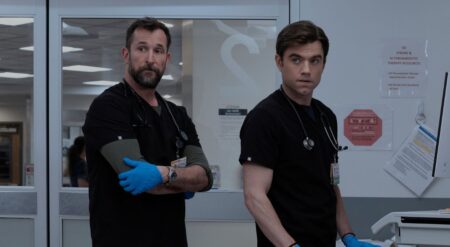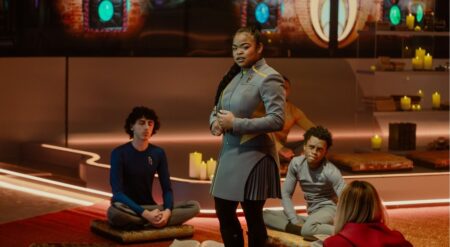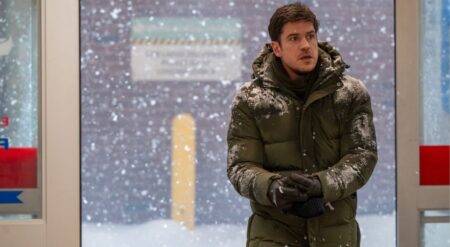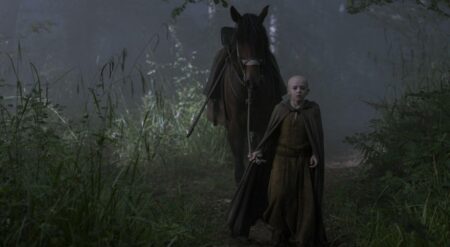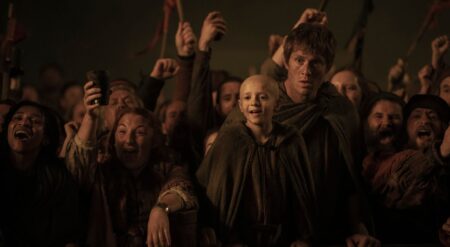
I have criticized The Dragon Prince in the past for not having a palpable sense of momentum. Thankfully, that is not the case in The Dragon Prince season 3. From the get-go, the third season of one of the top Netflix Original animations allows us to experience the excitement of the adventure the characters are on. Many things happen during this season, and it makes for a very entertaining watch. There’s rarely a moment you feel bored watching.
The action scenes are top-notch, and the character interactions are rich with energy. That’s not to say, however, the story choices were always the best they could be. Additionally, the season rushes to its resolution almost too quickly, in stark contrast to previous seasons. Hopefully, they strike a good balance in the future.
The Dragon Prince season 3 continues the underlying theme of learning from the past and showing the dangers of not doing so. The heroes are constructive and progressing in taking the right lessons, while the villains are destructive and regressive in doubling down on the past mistakes. It’s one of the best things about the series. This season also deals with the themes of discord and harmony between the warring factions, exploring where they might strife further and where they might come together for resolution.
In The Dragon Prince Season 3, we make it to Xadia, and it’s gorgeous. The anticipation to see this land of pure magic has paid off. Many of the scenes in Xadia are a majestic palette of vibrant colors. It’s truly like looking at moving paintings. The animators take every opportunity to physically show the magic coming out of the land. It’s all so beautiful to watch. Besides the amazing aesthetics, we learn more about the different elves and dragons of Xadia. Getting to learn more about the Sunfire Elves, in particular, is very intriguing. We watch them shape up to be prominent players in the events to come, along with other elves and dragons. Again, the series seems now to be hastening to its endpoint.
Ezran (Sasha Rojen) has his best story yet this season. He’s increasingly an active player in his own journey and a political player in the geopolitics of Katolis. Like how Season 1 focused on Rayla, and how Season 2 focused on Callum, this seems to be Ezran’s season to shine.
He’s still a young kid who has unfairly had these responsibilities thrust on him, and while he attempts to take it in stride, the toll is visibly on him as well. Without giving anything away, he makes some heartbreaking and brave decisions that have huge consequences throughout the season, and which might affect the show going forward. It’s gratifying to see his arc finally culminate into something great.

Rayla (Paula Burrows) and Callum (Jack De Sena), while continuing their journey with Zym, also have great development this season. However the former has more. In many ways, it’s also Rayla’s season to shine, along with Ezran. The weight of her and her family’s past actions begins to catch up with her. It really feels like she’s at a turning point as she faces potential exile from her people, and she must commit herself to choose a new path.
Callum is there to support her. It’s great to see Rayla at the center of this story, with her male counterpart acting as the emotional support. That said, there are some story decisions that feel a bit rushed and even forced for these two. Personally, I do like where it goes, but I don’t like the execution with the writing.
While the protagonists are great this season, the same can’t be said for the antagonists. The focus on Viren (Jason Simpson) just doesn’t work because he’s not a compelling villain. His motivations boil down to extreme arrogance and a superiority complex. Frankly, watching his scenes are boring, and it feels like we’re wasting screentime with him. His undisputed villainy is meant to be the point of course, but it just doesn’t make for an entertaining or insightful watch.
Likewise, I was hopeful that the Middle-Eastern coded Prince Kasef (Vincent Tong) would make for a compelling character, but he also doesn’t meet the mark. He’s a bland brute that’s meant to help Viren’s agenda. It seems quite clear that the show is poising Aaravos (Erik Dellums), who overall just seems far more intriguing, to be the main villain eventually, but for now, it’s a slog.
In contrast, Soren (Jesse Inocalla) has great character development. He further questions his role and loyalty to his family, thinking critically about what it is that he wants for himself and Katolis. It’s a nuanced and beautiful arc that shows how far he’s come from the bully he was in season one.
The same, unfortunately, can’t be said of his sister Claudia (Racquel Belmonte). While the show previously gave her great potential of being a complex and multifaceted character, this season severely regresses her. Her M.O. seems to be “blind loyalty,” without furthering on the questions it seems like she should be having as well. It feels like a waste for a character that had so much potential.
Overall, The Dragon Prince Season 3 improves on some of the faults of previous seasons and has a rapid story that will keep you excited to watch. That said, it runs into some storytelling pitfalls as a result of its grand ambition. It seems that the series as a whole, while entertaining and intriguing to watch, has an issue with its overall pacing for both its overarching story and individual characters. Perhaps, as it continues forward, it will fix these issues to reach its full potential.
The Dragon Prince Season 3 is available now, exclusively on Netflix.
Note: The Dragon Prince fandom was hit by allegations of a culture of gendered workplace discrimination perpetuated by the series showrunner, who has denied them. For more information on these allegations, you can check out Inverse’s coverage of them here. The women who have made these allegations encourage fans to not boycott the show. Here is my review.
'The Dragon Prince' Season 3
-
Rating - 8/108/10
TL;DR
Overall, The Dragon Prince season 3 improves on some of the faults of previous seasons and has a rapid story that will keep you excited to watch. That said, it runs into some storytelling pitfalls as a result of its grand ambition.

